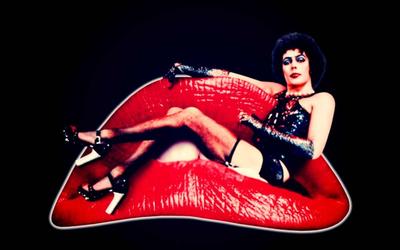By Lisabet Sarai
So what is the difference between erotica and porn?
Oh no! Not that old chestnut again! I’ve been a member of the ERWA Writers list for almost two decades. At least once or twice a year, some newcomer resurrects that question. Those of us who have been around for a while roll our eyes and grin to ourselves, already knowing how the discussion will go.
However, as I was thinking about my ERWA blog post for this month, I had an insight on this issue, which relates to writing craft.
Porn is easy. Erotica is hard.
I’m not saying that porn is easy to write. Though some people believe it’s a snap to throw together a great stroke story, I know that’s not true. Getting people hot and bothered takes talent and work, skill and imagination. This is true of erotica as well, of course, despite the disdain lavished on our genre by the literary establishment.
What I mean is that in porn, things are easy for the characters. The focus is on obtaining sexual satisfaction, the sooner the better. Readers don’t want the author to put obstacles in the way of the characters getting off. Hence, porn rarely features any significant conflict. The path from meeting to fucking is smooth and direct, with few if any stops along the way.
Erotica (and especially erotic romance), in contrast, thrives on obstruction. Erotica authors are more likely to put their characters through an emotional or physical wringer before the final consummation. Meanwhile, erotica readers tend to be more accepting of deferred gratification than readers of stroke fiction, in return for a richer and more complex narrative in which the characters overcome internal or external barriers in their journey toward release.
Conflict creates dynamic tension. It prevents the characters from rushing headlong into a sexual connection. As conflict keeps the protagonists apart—or at least denies them complete satisfaction—their level of arousal increases. When the conflict is finally resolved, the resulting experience, both for the characters and the reader, can be far more intense than the problem-free hookup in a stroke story.
Classic theory categorizes fictional conflict as man versus nature (or God, or demon – super-human forces at least), man versus man, and man versus himself. I hate the sexist terminology, but agree with the general breakdown. I’ve read (and written) erotica that used all three categories.
K.D. Grace’s recent novel In the Flesh offers a wonderful example of the first type of conflict. Her heroine Susan falls under the sway of an evil but mercilessly seductive disembodied entity who uses her natural sensuality as a route to destroy her. In fact, the perilous lure of supernatural sex is a common theme in paranormal erotica. It would be all too easy for Susan to succumb; she fights her erotic urges because she recognizes the danger.
Daddy X exploits “man versus man” (or more accurately, man versus woman) conflict in his fantastic short story “Spy versus Spy”. Nicolai and Lilya have been sexual partners for years. Their long acquaintance and shared history means each is still aroused by the other. However, neither trusts the other—for excellent reasons.
Conflict internal to the character is perhaps the most ubiquitous type found in erotica. Characters are often torn between their own deepest desires and their beliefs about what is acceptable, healthy or normal. Remittance Girl’s controversial novella Gaijin illustrates this pattern in the extreme. Kidnapped and raped by a Japanese gangster, her heroine still finds herself aroused—and hates herself for those feelings. In Cecila Tan’s Wild Licks, we meet rock star Mal Kenneally, an extreme sadist who never has sex with a woman more than once because he’s worried he’ll do serious physical or psychological damage. Uncertainty about sexual orientation or identity—religious guilt—memories of abuse —fear of losing control—struggles with fidelity—sex is an emotional mine field.
We erotica authors regularly take advantage of that fact.
How is this relevant to craft? If you’re trying to write erotica (as opposed to porn), you need to consider the question of conflict. All too often I find that stories I read in erotica anthologies are really just vignettes. They may be well-written, but ultimately they consist of sex scenes and little else. They’re not really stories. (Belinda made a related point in her Editing Corner post a few months ago.) Other readers may enjoy these tales, but I find them flat and unsatisfying. When I read erotica, I want something more complex and challenging.
Please note that I do not mean to denigrate stroke fiction. In fact, my observation about conflict can be applied to this sub-genre as well. If you want to write one-handed stories (and I’ve definitely done so), you should probably avoid conflict. Your readers very likely do not want characters who agonize over whether or not to do the deed.
Actually, it’s funny. Sometimes when I set out to write stroke fiction, I don’t completely succeed, because my characters’ motivations become too complicated. A good example is my story The Antidote. I wrote this very filthy tale in reaction to the self-censorship required by my erotic romance publisher (hence, the title). I wanted to create something full of no-holds-barred sex scenes. Instead, I ended up with an arousing but rather heavy tale about sex, society and deceit. Erotic, but not the porn I was trying for!
The distinction, of course, is not clear cut. That’s one reason we veterans sigh when someone brings up the porn/erotica debate. There’s really no black and white answer, only (please forgive me!) shades of gray.
Whichever direction your writing leans, though, you should consider the question of conflict. Are you going to give your characters what they want right away, or make them jump through hoops? Your decision makes a big difference in your readers’ experience.




I agree Lisabet with your thoughts and my stroke stories are always HEA, well except for the occasional beatings that take place.
Advice from the master! ;^)